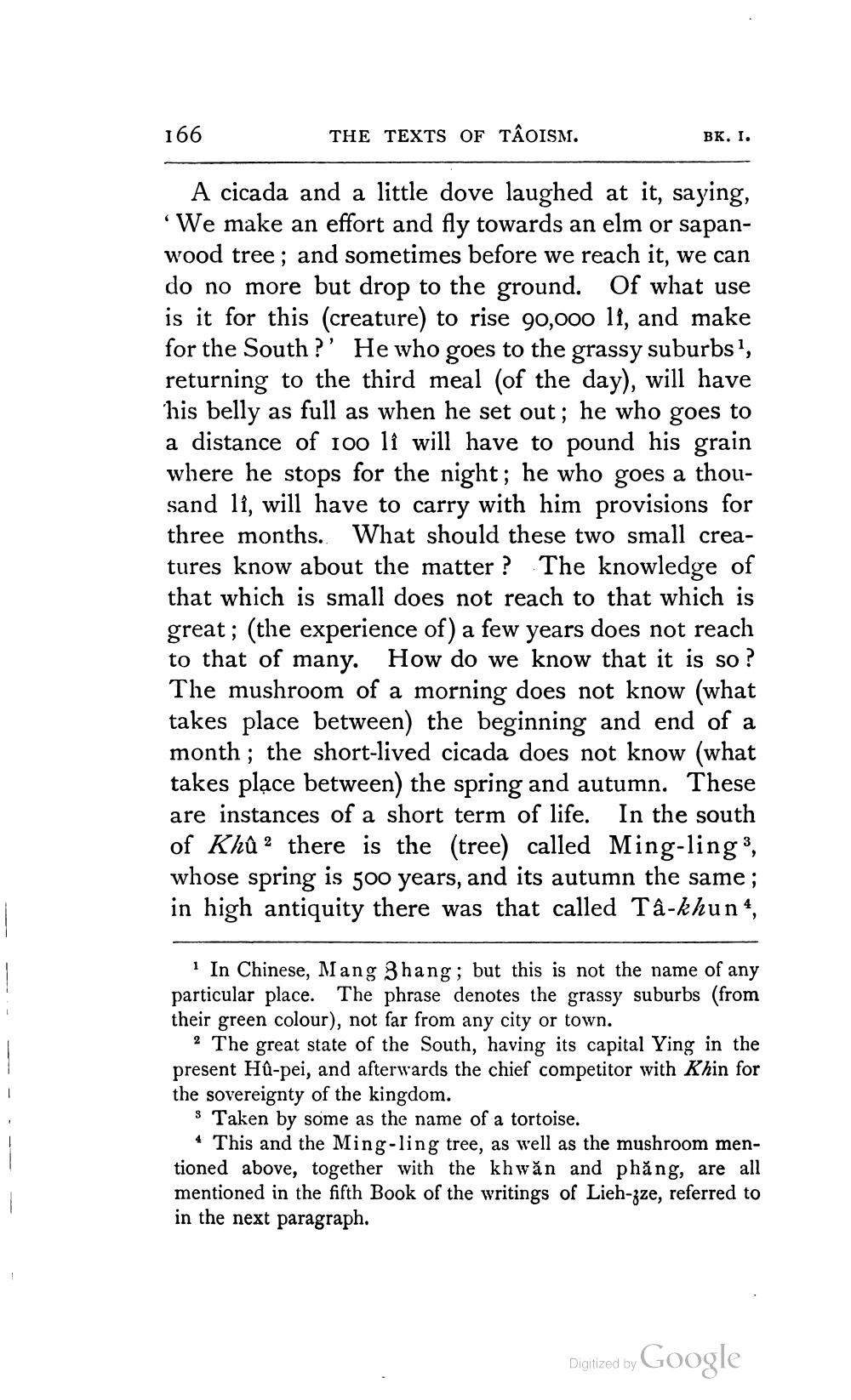________________
166
THE TEXTS OF TÂOISM.
BK. I.
A cicada and a little dove laughed at it, saying, 'We make an effort and fly towards an elm or sapanwood tree; and sometimes before we reach it, we can do no more but drop to the ground. Of what use is it for this (creature) to rise 90,000 1f, and make for the South ?' He who goes to the grassy suburbs?, returning to the third meal (of the day), will have his belly as full as when he set out; he who goes to a distance of 100 li will have to pound his grain where he stops for the night; he who goes a thousand lî, will have to carry with him provisions for three months. What should these two small creatures know about the matter? The knowledge of that which is small does not reach to that which is great; (the experience of) a few years does not reach to that of many. How do we know that it is so ? The mushroom of a morning does not know (what takes place between the beginning and end of a month; the short-lived cicada does not know (what takes place between the spring and autumn. These are instances of a short term of life. In the south of Khû there is the (tree) called Ming-ling 3, whose spring is 500 years, and its autumn the same; in high antiquity there was that called Ta-khun4,
1 In Chinese, Mang 3 hang; but this is not the name of any particular place. The phrase denotes the grassy suburbs (from their green colour), not far from any city or town.
? The great state of the South, having its capital Ying in the present Hû-pei, and afterwards the chief competitor with Khin for the sovereignty of the kingdom.
S Taken by some as the name of a tortoise.
4 This and the Ming-ling tree, as well as the mushroom mentioned above, together with the khwăn and phăng, are all mentioned in the fifth Book of the writings of Lieh-zze, referred to in the next paragraph.
Digitized by Google




